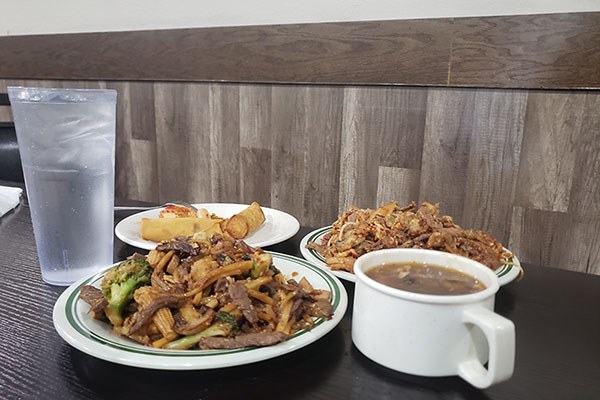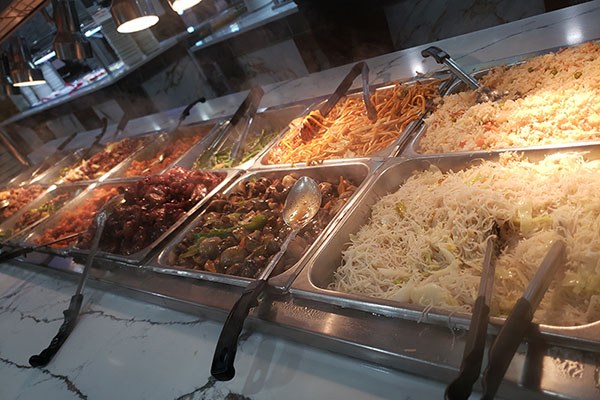The Basics of a Performance Diet
by Mark Rippetoe | February 04, 2025

Eating for strength training is just not that complicated. Most of the time, people who tell you it is are trying to sell you something. There are just a few basic principles to keep in mind.
If you are training hard, you have to eat enough calories and protein to recover. This is so often neglected that it is frustrating to me. Guys will train hard, with balls and dedication, and cost themselves PRs because they are concerned about their abs. This obsession with abs has been sold to you by social media, and its ancestors the internet and the Muscle Magazine Industry.
Gentlemen: women don’t care about your abs. Women like money and a big cock. Abs are for other guys. If you’re comfortable with that, fine, but it’s limiting your progress under the bar.
Your total caloric intake is how “eating enough” is measured. The particulars of the composition of that intake are important, and will be determined by your level of training advancement, your body composition, and your age. But you cannot train for strength productively on 1500 calories a day, no matter the particulars.
Protein builds muscle. The livestock industry knows this better than anybody else, so listen to what they tell you. Dietary protein drives lean body mass in a growing animal, and animal feeders take advantage of this with their protein-centered feeding program. More is always better. You are a growing animal, so do not neglect this very important dietary component. Protein should be the basis of every meal you eat. It can be meat – cow-meat, fish-meat, bird-meat, horse-meat (if you live in Europe), deer-meat, or anything else you can kill – or eggs (pre-bird-meat), or cottage cheese, or even a whey protein supplement. You cannot be a “vegan” and expect optimal results from your training, because quality protein does not come from plants.
Protein must be on hand when you eat, which means you either keep it in the kitchen or eat out at every meal. It’s cheaper and more fun to learn how to cook. Get a freezer and buy meat on sale, so that you’re always ready to feed yourself. If you’re serious about your training, you have to be serious about your protein intake, and this takes planning.
Depending on your training volume and intensity, carbs are important. If you’re training hard, you have to eat enough carbs to keep your blood sugar levels up. But shitty carbohydrates like sugar and processed flour are not good sources of long-term blood sugar support. You can tolerate some, especially right before training, but a lot of sugar and bread is not good, and you already know this. Most of your carbs should come from vegetables and fruit – I hate to sound like your 4th-grade teacher, but this is fundamental material.
Fat is an interesting nutritional component. It has been vilified by fools since the days of Ancel Keys and Covert Bailey, and mis-characterized by most doctors ever since. It is both a source of energy and the chemical materials for lots of interesting biology beyond the concerns of The Obesity Epidemic. The relationship between fat, carbohydrate, and body composition is beyond the scope of this article, but it’s useful to think of fats as more complicated and more important to your general biochemistry – you need them for recovery and metabolic health – while carbs are just for making blood sugar.
There are several essential fatty acids used in various metabolic reactions that must be supplied in the diet. Cholesterol is a very important component of the body’s biochemistry, and other fatty acids are important regulators of inflammation. Do your homework on this. In contrast, there are no essential carbohydrates.
Take note: there are no essential carbohydrates. There are several essential amino acids in proteins, and several essential fatty acids in dietary fats – meaning that the body cannot synthesize them – that they are necessary for normal function, and they must therefore be supplied in the diet. But carbs just turn to glucose, and fat if there is a surplus, and glucose can be made out of protein and fat. So if you are fat, carbs are probably your problem. Proteins and fatty acids are of utmost concern, while carbs provide fiber for the gut, and blood sugar for the last reps of the set. Carbs are useful for gaining weight, if that’s the position you’re in, but they need to be severely moderated if you’re in a bodyfat-loss situation.

There
have been volumes written on the minutia of an optimum training diet.
The numbers are wonderful to obsess over, if that’s your personality
type. But it’s just not that complicated: if you are a
hormonally-normal underweight young male training heavy under the bar
– not curls, but squats, benches, presses, and deadlifts, at limit
weights that are increasing – you need to get full
on a protein-based meal and get enough fat, carbs, and total calories
to train on and recover, three to four times every
day. This will be
more food than you think it will be, so get used to the idea if you
want to get big and strong. The best way to do this is to go to an
all-you-can-eat buffet at least 3 times a week, and make them ask you
to leave.
In
contrast, if you’re a fat guy with a high bodyfat percentage who
trains heavy, the process is a little different. Meals should be
based on protein, but carbs should be restricted to the extent that
the majority of the meals’ calories should come from protein and fat.
This will allow for recovery, muscular growth, and some slow bodyfat
loss.
We
don’t want you to be a fat guy. But the most unproductive approach to
strength training is focusing on silly shit like your abs. You will
train ineffectively, you will not get stronger, and this level of
vanity should be embarrassing.




